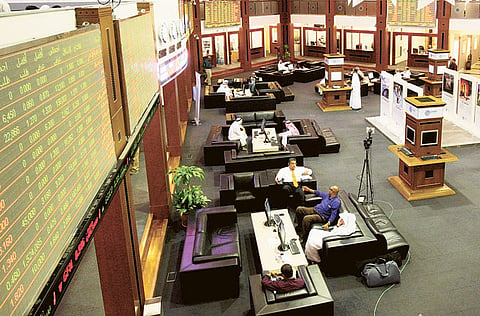Dubai a safe haven for investors
Mobius says stock market is in the midst of a bull run that will attract investments

Dubai Dubai's stock market, now in the midst of a bull run, will attract more institutional investors as its property market recovers and the UAE remains sheltered from regional turmoil, Mark Mobius said.
"Because of political turmoil you see money coming into Dubai in search of safety," Mobius, who oversees about $50 billion (Dh183.5 billion) as executive chairman of Templeton Asset Management Ltd.'s emerging markets group, said at an interview in Bloomberg's Dubai office on March 8. "It's definitely going to dawn on institutional investors."
Last month, the benchmark surpassed the 20 per cent threshold some consider the beginning of a bull market, and had the top monthly gain among benchmark equity indexes worldwide.
The UAE has emerged as a safe haven in the Middle East and North Africa after a wave of popular uprisings ousted leaders in Egypt, Tunisia and Libya last year.
"We've got all this money floating around; the first home is the biggest markets," Mobius said.
"Then they look at emerging markets, which is why they are outperforming again, and then they look further afield into so-called frontier. This is where the Middle East comes in."
Stock markets in Abu Dhabi and Dubai gained this year as companies posted improved earnings and after Dubai said it expects two of its main companies to refinance debt without government help.
Dubai stocks tumbled 17 per cent in 2011 on the heels of the Middle East uprisings, out-performing the 49-per cent drop in Egypt benchmark.
Interesting symbol
"Dubai has become a very interesting symbol of the Middle East," Mobius said. "We continue to add because we get more money coming in," he said, referring to stock markets in Dubai, Saudi Arabia and Qatar.
Dubai's stock market dropped in 2010 and 2011 as the emirate contended with a real-estate crash that pushed home prices down more than 60 per cent from a mid-2008 peak, according to Bank of America Merrill-Lynch estimates.
Home prices have stabilised in Dubai and in Abu Dhabi, the government said in January it plans to resume projects, including branches of the Louvre and Guggenheim museums, after reviewing their viability.
Abu Dhabi real estate prices fell 45 per cent from 2008 peaks. The ADX General Index, down 12 per cent last year, has advanced 8.9 per cent so far in 2012.
"The boom is already beginning," Mobius said. "The property market is beginning to move again and the capital markets are going to be growing. I think you are going to see a lot more people coming, in particular if Saudi Arabia opens up."
The value of shares traded in Dubai has also improved, with Dh981 million ($267 million) exchanging hands on March 5, the highest since April 2010.
Saudi Arabia's Tadawul All Share Index, the region's biggest bourse, has rallied 17 per cent so far this year.
The kingdom's Capital Market Authority is in talks with international banks to open the nation's stock exchange to foreign investors early in 2012, three bankers familiar with the matter said in October. Foreign, non-GCC investors currently can't directly invest in Saudi shares.
Saudi Arabia, the Arab world's largest economy, permits non-resident foreigners to trade through share-swap transactions and exchange-traded funds, with the market regulator approving the first ETF in March 2010.
The government allowed citizens of neighbouring Gulf states to trade in shares in 2007.



